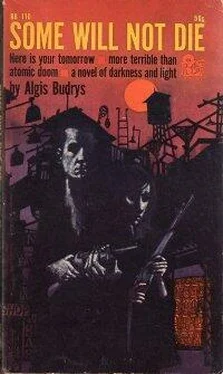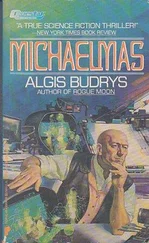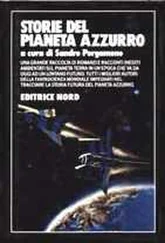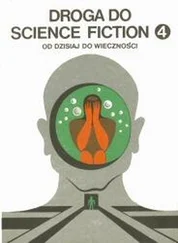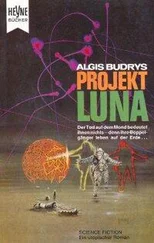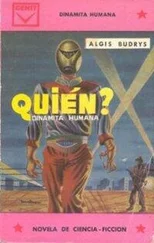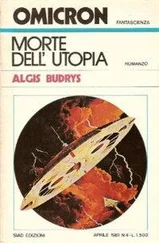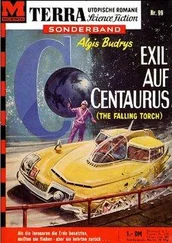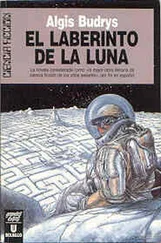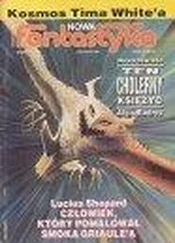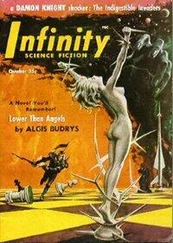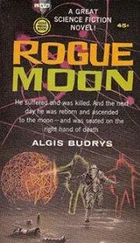Algis Budrys - Some Will Not Die
Здесь есть возможность читать онлайн «Algis Budrys - Some Will Not Die» весь текст электронной книги совершенно бесплатно (целиком полную версию без сокращений). В некоторых случаях можно слушать аудио, скачать через торрент в формате fb2 и присутствует краткое содержание. Год выпуска: 1961, Издательство: Regency Books, Жанр: Фантастика и фэнтези, на английском языке. Описание произведения, (предисловие) а так же отзывы посетителей доступны на портале библиотеки ЛибКат.
- Название:Some Will Not Die
- Автор:
- Издательство:Regency Books
- Жанр:
- Год:1961
- ISBN:нет данных
- Рейтинг книги:4 / 5. Голосов: 1
-
Избранное:Добавить в избранное
- Отзывы:
-
Ваша оценка:
- 80
- 1
- 2
- 3
- 4
- 5
Some Will Not Die: краткое содержание, описание и аннотация
Предлагаем к чтению аннотацию, описание, краткое содержание или предисловие (зависит от того, что написал сам автор книги «Some Will Not Die»). Если вы не нашли необходимую информацию о книге — напишите в комментариях, мы постараемся отыскать её.
Some Will Not Die — читать онлайн бесплатно полную книгу (весь текст) целиком
Ниже представлен текст книги, разбитый по страницам. Система сохранения места последней прочитанной страницы, позволяет с удобством читать онлайн бесплатно книгу «Some Will Not Die», без необходимости каждый раз заново искать на чём Вы остановились. Поставьте закладку, и сможете в любой момент перейти на страницу, на которой закончили чтение.
Интервал:
Закладка:
“We can’t lick them, and they can’t lick us. But we can chop each other up little by little, and we can all starve while we’re doing it. Because we sure as hell can’t forage and fight a war at the same time. There’s plenty of other people out there to make sure it takes a strong party to bring home the bacon.
“There’s one way out. We can join up with each other. If we can get Conner to settle for something less than us being his slaves. It’s not the most likable idea in the world, but I don’t see any other way to save what we’ve got. Conner’s no prince. He’ll try and make it as tough on us as he can. But maybe we can work something out. I say it needs trying, because it’s a cinch we lose too much, any other way.”
The argument broke loose again, and Garvin sat letting it wear itself out. He didn’t think Gus was right. It meant somebody would have to stick his neck out, and that went against all his grain.
But he couldn’t think of anything else to do. Gus was right about that part, at least. Matt had been hoping that giving it time would show some way out. Now he didn’t know what to do, so, again by instinct, he was willing to let somebody else move. He looked across the table at Gus, who sat brooding at the blacked-out window, as if he could see the other buildings huddled in the night outside.
“Well, if we don’t do something,” Jack Holland’s sharp voice emerged from the tangle of words, “we can go down in history as a bunch of people who almost got things started again but didn’t make it.”
“I don’t give no damn for history,” another man said. “But I got five kids, and I want ’em to eat.”
And that about settled it, Garvin thought. But none of them could honestly call it anything except a bad bargain. Especially Gus and he, for it would be they who would have to go out and talk to Conner.
“Almost Christmas,” Gus said in a low, brooding voice. He and Garvin stood at the window, the blankets pulled aside now that the men were gone and the lamps were out. “Peace on Earth, good will to men. Oh, little town of Stuyvesant, how still we see thee…” He snorted. “A hundred years from now, they’ll have Christmases. They’ll have trees, and tinsel, and lights. And I hope the kids play with toy tractors.”
“I got Jim a stuffed bear,” Garvin said. “What’d you get for Ted?”
Gus snorted again. “What do you get any four-year-old? Books with lots of pictures—Carol wants to start his reading pretty soon. A wooden toy train—stuff like that. That’s for a four-year-old. When he’s a year or two older, we can start explaining how come the books don’t mean anything, and the train’s a toy of something that just isn’t, anymore. It’s the question of what you get him then that bothers me.”
Matt, too, found himself staring dull-eyed at the cold city as Berendtsen’s mood communicated itself and seeped into his system.
Tomorrow would be better. Tomorrow was always better, for someone. The difficult task lay in ensuring that the someone was one of yours.
He had Jim, and one-year-old Mary. Moreover, Margaret was almost certain she was pregnant again. Gus and Carol had Ted.
The weight that rode Berendtsen’s shoulders slumped Garvin’s own.
“Think it’ll work?” Gus said expressionlessly.
“Up a pig’s tail, maybe,” Matt answered.
[Image]
Dawn slipped through the weave of the blankets over Garvin’s bedroom windows, and he shook his mind free of sleep. He swung off his side of the mattress, shivering.
“Stove’s gone out again, dear,” Margaret mumbled sleepily from under the blankets.
“I know. I guess I forgot to fill it before I went to bed. Go back to sleep,” he whispered, dressing hastily. She turned over, smiled, and buried her face in the pillow again. By the time he finished lacing his boots, she was asleep once more, and he chuckled softly at her faint snores.
He stopped to look in on the children before he went out to the kitchen to heat shaving water, and he lit the burner absently, staring down at the flame for a long while before he put the pan on. He walked quietly back to the bathroom with the pan in his hand, still bemused—less lost in thought than busy avoiding thought—washed, and shaved with a steady but automatic hand. He flushed the toilet with a pail of dishwater, filled and lit the stove, had breakfast, and finally sighed, pushed his dishes away, and stood up. He went over to the rough doorway that had been cut in the wall, and rapped on it lightly.
“Yeah, Matt,” Gus answered from inside. “Come on in. I’m just knocking off another cup of coffee.”
Garvin stepped inside, and sat down at Berendtsen’s table. Gus was leaning on his elbows, his neck drawn down into his shoulders, both hands on the big cup of yellowishly weak coffee that he held just below the level of his chin, raising it to his mouth at intervals. They sat without speaking until Gus finally put the emptied cup down.
“Cold day,” he said.
“Damn near froze in bed. Forgot to fill the stove,” Matt answered.
Berendtsen sighed from far back in his throat. He got to his feet and picked up his rifle. He pulled a square piece of white sheet out of his jumper pocket and tied two of the corners to the rifle barrel.
“Got yours?” he asked.
“Inside,” Matt nodded back toward his apartment. “Carol know what you’re doing?”
Berendtsen shook his head. “Margaret?”
“No.”
“I think now we should have told them,” Gus said.
“I started to tell Carol—. But the way I suddenly figured it, before I really said anything, was that it wouldn’t make any difference in what happened. Figured she might as well get a good night’s sleep, instead.” He grinned wryly. “Turned chicken.”
Matt nodded. “Yeah.” He moved toward the doorway. “Me too. Well, let’s get it done.”
They went out through Matt’s apartment, and made sure the other men were set at their covering positions in the windows that overlooked the next building. Then the two cowards went out into the cold.
They stepped out into the middle of the drive that separated the building from theirs, stopped, and looked up at the blank wall.
Garvin exchanged a glance with Gus. “What do we do now?” he asked.
Berendtsen shrugged. He held his white-flagged rifle more conspiciously, and Matt did the same. Finally, Gus threw his head back and shouted.
“Hey! Hey, you, in there!”
The echoes died on the air, and nothing moved.
“Hey! Conner! We want to talk to you.”
But somewhere in those banks of glass, there must have been a slowly opening window.
Behind them, in their own building, someone fired first, but it no longer mattered. It did not cause, but was a desperate attempt to prevent, the fire that suddenly burst from behind a half-dozen windows.
Because Matt had been half-afraid it would come, the crash of fire was not as shocking as the sudden collapse of his right leg. He fell on his side in the drive, his head cracking against the asphalt, and was completely unable to move for a frantic time that seemed fatally long. Then, finally, while the sniping from the enemy building was diverted by the heavier fire of his own men, he was able to use Gus’s body for cover, pushing it ahead of him until he reached the shelter of a car. He stayed there till nightfall, freezing and bleeding, with his eyes unwaveringly on dead Berendtsen’s face, while the sporadic fire continued over his head between the buildings. And gradually, through the long, long day until his men were able to get to him and take him back to his building, his eyes acquired an expression which they never quite lost again; which, for the rest of his life blazed up unpredictably to soften the voices of those around him.
Читать дальшеИнтервал:
Закладка:
Похожие книги на «Some Will Not Die»
Представляем Вашему вниманию похожие книги на «Some Will Not Die» списком для выбора. Мы отобрали схожую по названию и смыслу литературу в надежде предоставить читателям больше вариантов отыскать новые, интересные, ещё непрочитанные произведения.
Обсуждение, отзывы о книге «Some Will Not Die» и просто собственные мнения читателей. Оставьте ваши комментарии, напишите, что Вы думаете о произведении, его смысле или главных героях. Укажите что конкретно понравилось, а что нет, и почему Вы так считаете.
